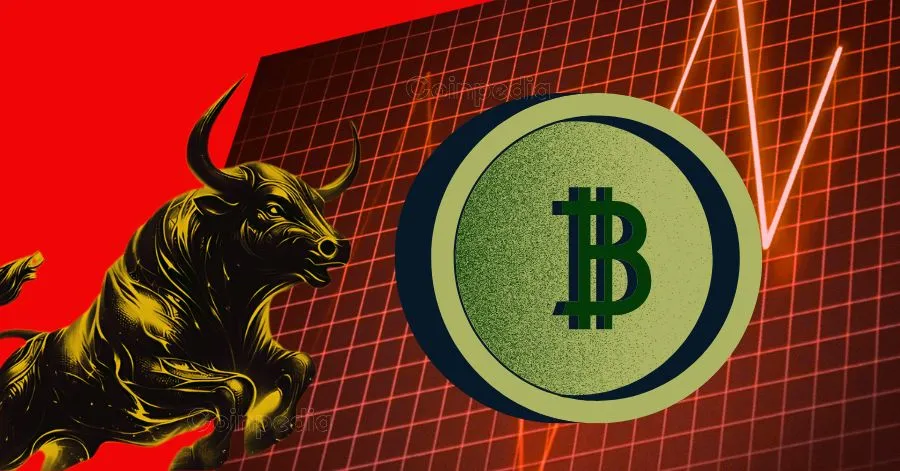In a significant development for the cryptocurrency industry and Coinbase, the state of Illinois has decided to drop its lawsuit concerning Coinbase’s staking services. This move follows similar withdrawals from Kentucky, Vermont, and South Carolina, signaling a potential shift in the regulatory landscape surrounding crypto staking in the United States. Is this the relief the crypto world has been waiting for? Let’s dive into what this means for Coinbase, the broader crypto market, and the future of crypto staking. Understanding the Coinbase Staking Lawsuit Saga For those unfamiliar, Coinbase, a leading cryptocurrency exchange, offers a staking service that allows users to earn rewards on their crypto holdings. Staking, in simple terms, is like earning interest on your crypto. You commit your crypto assets to support the operations of a blockchain network, and in return, you receive rewards, often in the form of more of the same cryptocurrency. However, the legality of these services has been under scrutiny from various state regulators, leading to lawsuits like the one recently dropped by Illinois. These lawsuits generally revolve around whether crypto staking services should be classified as securities, which would bring them under stricter regulatory frameworks. Why is the Illinois Lawsuit Drop Significant for Crypto Staking? The decision by Illinois to drop the lawsuit is more than just a minor legal victory; it’s a potentially pivotal moment for the future of crypto staking in the US. Here’s why it matters: Precedent Setting: When multiple states like Kentucky, Vermont, South Carolina, and now Illinois drop similar lawsuits, it creates a pattern. This pattern can act as a precedent, making it harder for other states to pursue similar legal actions against Coinbase or other crypto platforms offering staking services. Positive Regulatory Signals: These withdrawals can be interpreted as a softening stance from state regulators on crypto staking. It might indicate a growing understanding, or at least a reassessment, of crypto services and a move towards more nuanced regulatory approaches rather than outright prohibition. Boost for Coinbase: For Coinbase, these dropped lawsuits are a clear win. The legal battles consume resources, create uncertainty, and can negatively impact public perception. Clearing these hurdles allows Coinbase to focus on its core business and continue offering its staking services with less regulatory pressure from these specific states. Market Confidence: Positive legal developments like these can boost overall market confidence in the crypto space. It reduces the fear of overly aggressive regulatory crackdowns and suggests a more constructive dialogue might be emerging between regulators and the crypto industry. Coinbase’s Stance: Staking is Not a Security Throughout these legal challenges, Coinbase’s Chief Legal Officer (CLO) Paul Grewal has consistently maintained that their staking services are not securities. This is a crucial point in the ongoing debate. The classification of crypto assets and related services as securities has significant regulatory implications. If staking is deemed a security, it would subject Coinbase and other providers to securities laws, requiring registration, disclosures, and potentially more stringent operational requirements. Coinbase’s argument, and the apparent shift in stance from some states, suggests a potential recognition that staking might not neatly fit the traditional definition of a security. The Broader Implications for Regulatory Clarity The withdrawal of these lawsuits contributes to a growing narrative around the need for regulatory clarity in the cryptocurrency space. For years, the lack of clear rules and guidelines has been a major impediment to the growth and mainstream adoption of crypto. Businesses struggle to operate in a legal gray area, and investors are hesitant due to uncertainty. Actions like these lawsuit drops, while not definitive policy statements, can be seen as steps towards a more defined and potentially more favorable regulatory environment. However, it’s important to note that this is a state-level development. Federal regulatory bodies like the SEC still hold significant influence, and the overall regulatory landscape remains complex and evolving. Illinois Lawsuit and its Context within State Regulations The Illinois lawsuit was part of a broader wave of state-level regulatory scrutiny targeting crypto staking services. Each state has its own securities laws and regulatory bodies, leading to a patchwork of regulations across the US. While the withdrawal in Illinois is positive, it doesn’t mean the issue is resolved nationwide. Here’s a look at the context: State Action on Coinbase Staking Status Illinois Lawsuit related to staking services Dropped Kentucky Similar lawsuit Dropped Vermont Similar lawsuit Dropped South Carolina Similar lawsuit Dropped Other States Ongoing regulatory discussions and potential actions Varying This table illustrates a trend, but it’s not a universal clearance. Other states may still have concerns or ongoing investigations. The crypto industry needs to continue engaging with regulators at both state and federal levels to advocate for clear and sensible rules. Navigating the Coinbase Legal Battle: What’s Next? While these dropped lawsuits are encouraging, Coinbase’s legal battle is likely far from over. The broader debate about crypto regulation in the US is ongoing, and various agencies are still formulating their approaches. Here are some key aspects to watch out for: SEC Scrutiny: The Securities and Exchange Commission (SEC) remains a major player in crypto regulation. Their stance on staking and other crypto services will be crucial in shaping the future landscape. Federal Legislation: There are ongoing efforts in the US Congress to create comprehensive crypto legislation. The outcome of these legislative efforts will have a profound impact on the industry. Global Regulatory Trends: The US is not alone in grappling with crypto regulation. Developments in other major economies will also influence the global regulatory environment and could indirectly affect US policy. Industry Advocacy: Continued advocacy from crypto companies and industry associations is essential to ensure that regulations are balanced, promote innovation, and protect consumers without stifling growth. Conclusion: A Sigh of Relief, But Continued Vigilance Needed The news of Illinois dropping the Coinbase staking lawsuit, following similar actions by other states, is undoubtedly a positive development for Coinbase and the crypto industry as a whole. It signals a potential easing of regulatory pressures at the state level and contributes to the ongoing quest for regulatory clarity . However, the journey towards a fully defined and stable regulatory environment for crypto is still underway. Stakeholders must remain vigilant, engage in constructive dialogue with regulators, and continue to advocate for policies that foster innovation while addressing legitimate concerns. This victory offers a moment of relief, but the broader Coinbase legal battle and the fight for sensible crypto regulation continues. To learn more about the latest crypto regulation trends, explore our article on key developments shaping crypto policy and compliance.















